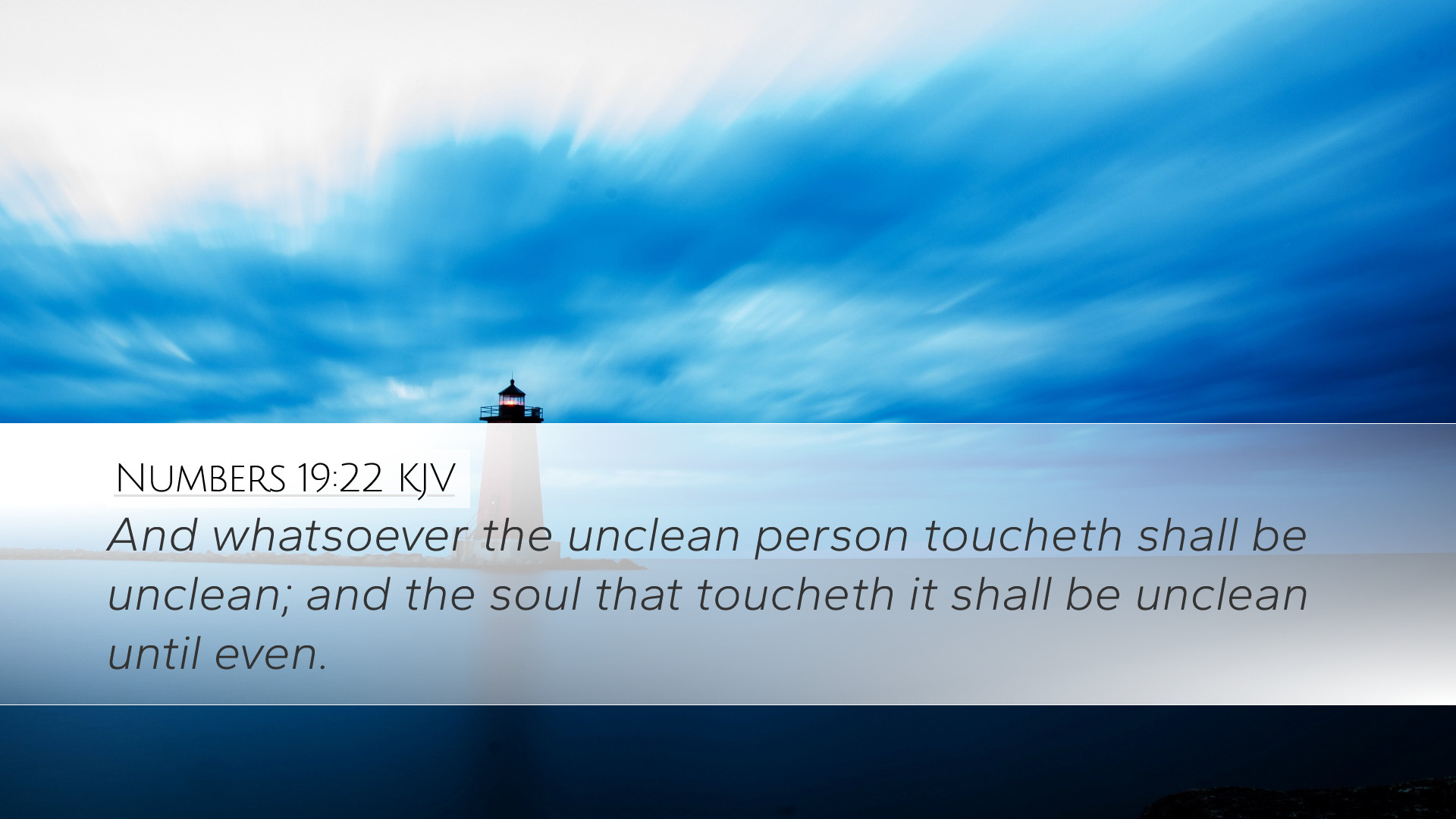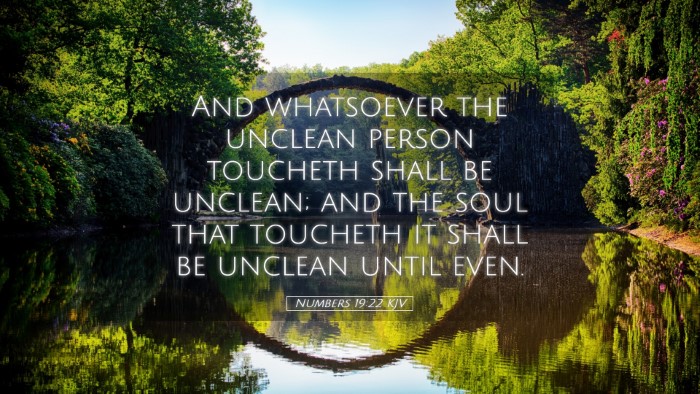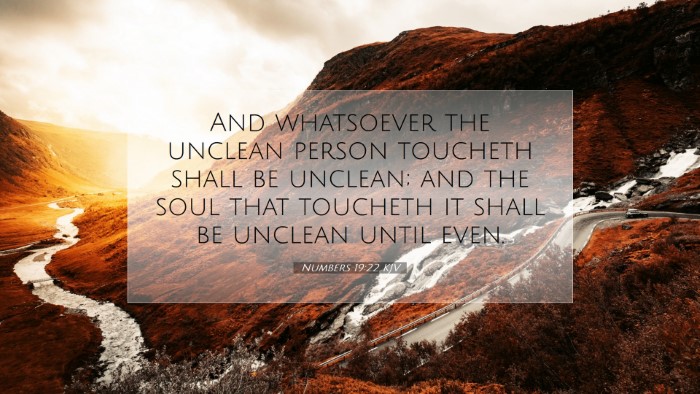Commentary on Numbers 19:22
Verse: "And whatsoever the unclean person toucheth shall be unclean; and the soul that toucheth it shall be unclean until even." (Numbers 19:22)
Contextual Overview:
The Book of Numbers details the journey and regulations of the Israelites during their time in the wilderness. Chapter 19 deals primarily with the law of purification, particularly concerning those who have come into contact with death, symbolizing sin and defilement.
Importance of Cleansing
Matthew Henry emphasizes that the laws surrounding cleanness and uncleanness in Israel were not arbitrary but served to illustrate the seriousness of sin. Touching a dead body was a profound metaphor for spiritual death, and these regulations reminded the Israelites of their need for holiness.
Symbolism of the Unclean
Albert Barnes notes that this verse serves as a warning about the contagious nature of spiritual uncleanness. Just as physical contact with something unclean transfers defilement, so too does contact with sin affect an individual's spiritual condition. It highlights the importance of maintaining holiness and distancing from what is inherently defiled.
Consequences of Tactile Contact
Adam Clarke elaborates on the implications of touching or coming into contact with what is unclean. He suggests that the law served to instruct the people about the effects of sin in their lives. The phrase "shall be unclean until even" indicates a period of separation and the necessity of ritual purification before one could be restored to the community.
Spiritual Application
The principles drawn from Numbers 19:22 can be applied in various theological contexts:
- Holiness: It reflects the call for God's people to pursue holiness and flee from sin. Pastors and theologians can draw parallels to the New Testament, where believers are reminded to guard their hearts and minds from influences that compromise spiritual integrity.
- Community Awareness: The communal aspect of uncleanness in this verse stresses the importance of accountability within the body of Christ. Just as one person's unclean state could affect others, the behavior of one believer can influence the spiritual well-being of the church community.
- Purification Process: The reading serves as a precursor to the teachings of Christ regarding purification through His blood. The letter to the Hebrews (Hebrews 9:13-14) draws parallels between the Old Testament purification rituals and the ultimate atonement found in Jesus.
Conclusion
In Numbers 19:22, we find a significant reminder of the pervasive nature of sin and its effects on community and personal holiness. The commentary from Henry, Barnes, and Clarke presents a cohesive understanding that applies both to the original audience and to modern readers. The emphasis on ritual cleansing speaks to a deeper spiritual truth about the necessity of coming to Christ for purity and restoration.
Pastors, students, and scholars are invited to reflect on these themes, encouraging a lifestyle that seeks holiness and fosters strong community ties grounded in accountability and grace.


